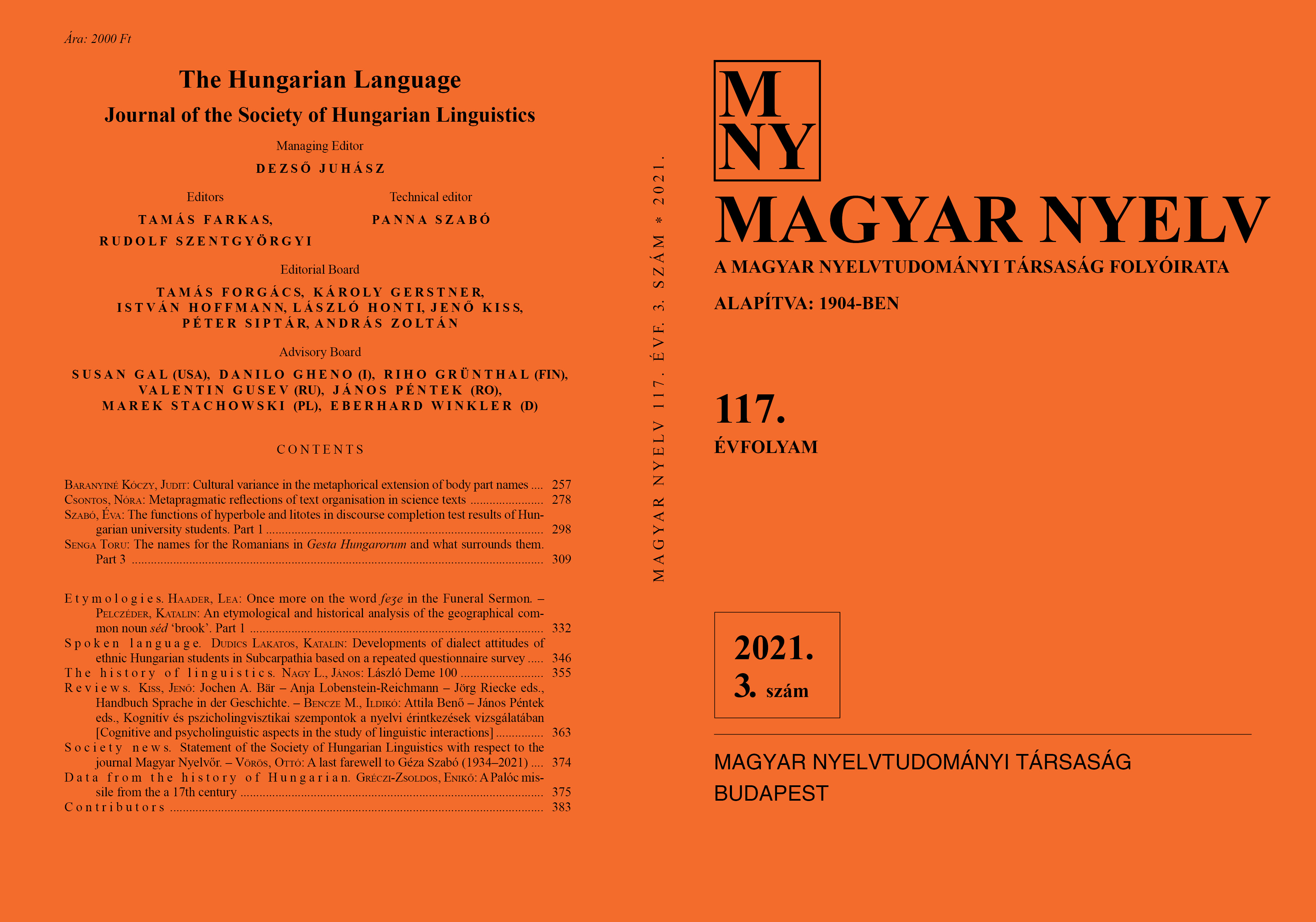Metapragmatic reflections of text organisation in science texts
DOI:
https://doi.org/10.18349/MagyarNyelv.2021.3.278Keywords:
texts of science, metadiscourse, metapragmatic reflections for text organization, discourse deixis, discourse markersAbstract
The study interprets technical texts as specialized texts of science, with an emphasis on knowledge building and the way it is based on a combination of cognitive semantics and pragmatics. It also discusses ways in which knowledge is shared, a process essentially characterised by a reflexive attitude to sharing. It prioritises the metacomponent of texts that can be considered metadiscourses and examines the possibilities of metapragmatic reflections based on their direction. Among all these options, it focuses on the ones that help to organize the text. Qualitative analysis is offered of the language tools that implement the operation of discourse deixis and the functioning of discourse markers.
Downloads
Published
Issue
Section
License
Copyright (c) 2024 Nóra Csontos

This work is licensed under a Creative Commons Attribution-NonCommercial-NoDerivatives 4.0 International License.
Magyar Nyelv is a Diamond Open Access periodical. Documents can be freely downloaded and duplicated in an electronic format, and can be used unchanged and with due reference to the original source. Such use must not serve commercial purposes. In the case of any form of dissemination and use, Hungarian Copyright Act LXXVI/1999 and related laws are to be observed. The electronic version of the journal is subject to the regulations of CC BY-NC-ND (Creative Commons – Attribution-NonCommercial-NoDerivatives).
The journal permits its authors, at no cost and without any temporal limitation, to make pre-print copies of their manuscripts publicly available via email or in their own homepage or that of their institution, or in either closed or free-for-all repositories of their institutions/universities, or other non-profit websites, in the form accepted by the journal editor for publication and even containing amendments on the basis of reviewers’ comments. When the authors publicize their papers in this manner, they have to warn their readers that the manuscript at hand is not the final published version of the work. Once the paper has been published in a printed or online form, the authors are allowed (and advised) to use that (post-print) version for the above purposes. In that case, they have to indicate the exact location and other data of the journal publication. The authors retain the copyright of their papers; however, in the case of an occasional secondary publication, the bibliographical data of the first publication have to be included.



